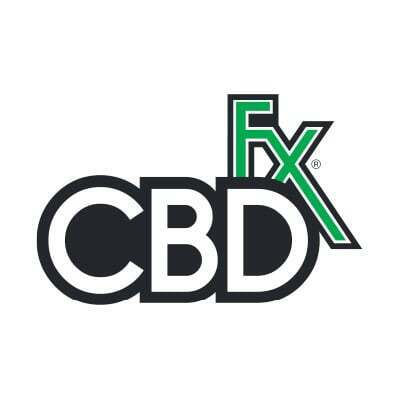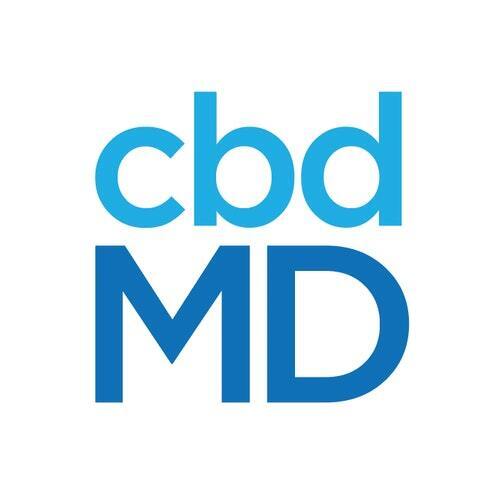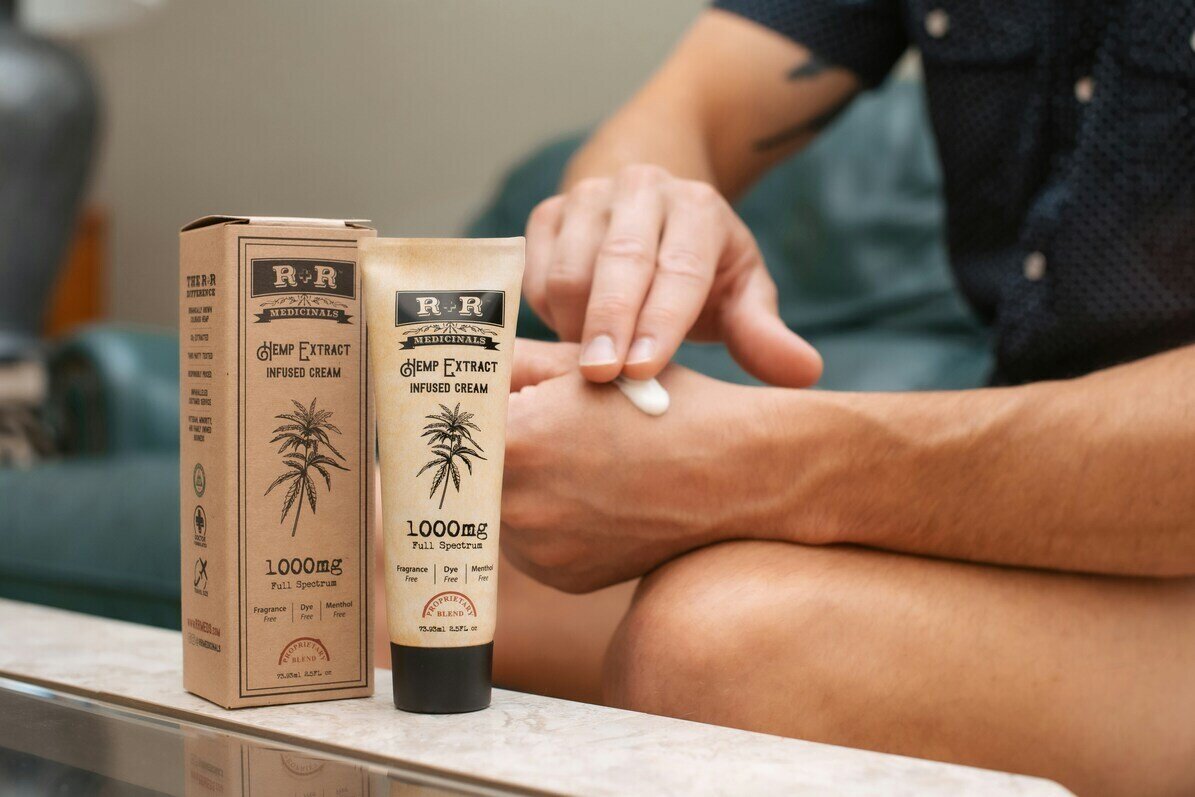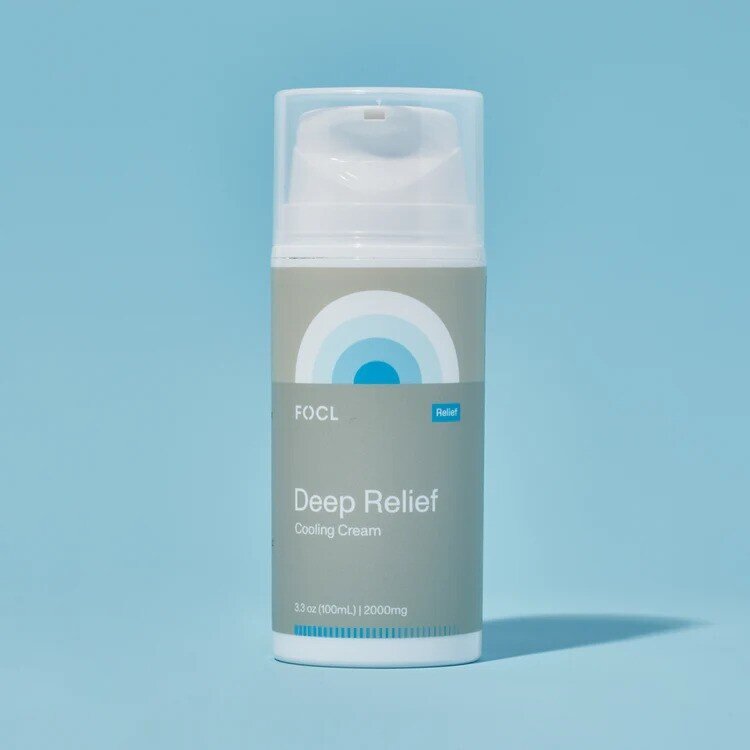Psoriasis is a common skin condition characterized by scaly, itchy skin patches. It’s usually treated by topical creams and ointments, but the condition is not curable, and standard treatments are not always effective. That’s why many people turn to alternative options, such as cannabis and hemp-derived cannabidiol (CBD) products. Here’s what the science says about the potential of using CBD for psoriasis.
OUR PICK
FEATURED RETAILERS

CBDfx
CBDfx is an online hemp CBD retailer that sells CBD oil, CBD vape juice, capsules, and more.

Medterra
Medterra is easily one of the most trusted brands currently in the industry, with a team of experts developing their products and an advisory board backing up on those products.

cbdMD
cbdMD is by far one of the largest CBD brands currently on the market and they’ve developed a very diverse selection of CBD oils and products.
Psoriasis Overview
Psoriasis is an autoimmune skin disorder that causes red, itchy marks covered by flaking silvery scales. It most commonly affects the knees, elbows, scalp, and torso.
Health experts believe the main cause of psoriasis is the rapid growth of skin cells resulting from an overactive immune system. ¹ Psoriasis is a chronic condition that goes through cycles of flaring and receding.
Psoriasis Subtypes
There are several types of psoriasis: ²
- Plaque psoriasis (psoriasis vulgaris): the most common type of psoriasis (90% of cases), distinguished by raised, red, itchy patches covered in white scales.
- Inverse psoriasis: inflamed, shiny marks that occur in areas where your skin folds, such as the armpits, groin, and inner thighs.
- Guttate Psoriasis: this type of psoriasis is marked by small red spots and tends to affect children and adolescents.
- Pustular Psoriasis: characterized by red, scaly patches with pustules that typically appear on the hands and feet.
- Erythrodermic psoriasis: a short-term condition distinguished by red, inflamed skin on over 90% of the body. It can occur in any type of psoriasis as a result of sunburn, certain medications, and other factors.
Some people also develop psoriatic arthritis, a form of arthritis that occurs in about 20% to 30% of psoriasis sufferers. ³
Psoriasis Symptoms and Pathology
The most common symptom of a psoriasis flare is raised, red, and flaky skin patches. These patches can be small in size, or be spread out over large areas. Psoriasis can also cause soreness, itching, and burning around the spots, pitted nails, and dry, cracked skin that can bleed.
These symptoms worsen during a flare-up, and can disappear completely when psoriasis subsides.
CBD and Psoriasis: Can it Help?
There’s a growing number of test-tube studies suggesting that you can use CBD oil for psoriasis.
One 2007 study looked at the effects of CBD, tetrahydrocannabinol (THC), and other cannabinoids in the cannabis plant on keratinocytes: the skin cells whose rapid growth — what scientists call proliferation — is the main cause of psoriasis.
All of the cannabinoids reduced keratinocyte proliferation, leading the researchers to conclude that there’s a “potential role for cannabinoids in the treatment of psoriasis.” ⁴
More recently, the authors of a 2017 paper proposed that cannabinoids can help with psoriasis by addressing two key processes involved in its development: inflammation and angiogenesis, the formation of new blood vessels. ⁵ As it happens, CBD has been demonstrated to reduce inflammation and act as antiangiogenic effects. ⁶ ⁷
Additionally, a 2020 study looked at the effects of CBD on isolated human keratinocytes. The researchers found that cannabidiol affected the cells’ differentiation, leading them to conclude that it could be useful for treating various skin disorders. ⁸
CBD, The Endocannabinoid System, and Your Skin
Researchers theorize CBD’s potential benefits in treating psoriasis may come from its interaction with the body’s endocannabinoid system (ECS).
The ECS consists of three parts: endocannabinoids produced by our bodies, the enzymes that make and break them down, and cannabinoid receptors (CB1 & CB2).
CBD interacts with the ECS in two major ways:
- Suppressing an enzyme (FAAH) that breaks down the endocannabinoid anandamide, boosting its levels and prolonging its effects ⁹
- Altering the function of the CB1 receptor ¹⁰
Discovered only recently, this important system plays a role in regulating everything from brain function, to immunity, to the maintenance of homeostasis — a state of internal balance. ¹¹
Each component of the ECS can also be found in the skin — your largest organ — with growing evidence that this system may be involved in maintaining skin health. In particular, studies have indicated that the ECS is involved in skin cell proliferation, differentiation, survival, and immune responses, all of which can play a role in psoriasis. ¹²
There’s also an indication that malfunction of the ECS may be associated with the development of skin conditions, including psoriasis. ¹³ For example, one study found that people with psoriasis and a related condition, called psoriatic arthritis, had elevated endocannabinoid levels in various blood cells. ¹⁴
The bottom line is that the ECS may play an essential role in skin health and the processes that underlie psoriasis and other skin conditions. Although dosages, timing, and intake methods are yet to be determined for effective treatment, the preliminary evidence suggests that using CBD may positively affect psoriasis and its symptoms through its effect on the ECS.
Anandamide and the Skin
The endocannabinoid anandamide may be particularly interesting when it comes to the role of the ECS on skin health.
One study found that it reduced the release of pro-inflammatory molecules called cytokines by immune cells in the skin, a process that seems to be involved in causing psoriasis and other inflammatory skin conditions. ¹⁵
There’s also proof that anandamide can reduce itching — one of the symptoms of psoriasis — as demonstrated by a study, where suppressing the FAAH enzyme reduced the itching response in mice. ¹⁶
As we highlighted earlier, CBD has the same effect on this enzyme and can increase anandamide levels. As such, increasing anandamide levels could be a major factor in how CBD may help to treat psoriasis.
A recent 2020 review paper summarizing the results of various studies on the effects of anandamide, THC, CBD, and other cannabinoids, made some noteworthy conclusions. It posited that they all may have an important role in reducing skin inflammation, cell proliferation, fibrosis, pain, and itching — all of which may help with treating psoriasis and other skin conditions. ¹⁷

What Does the Research Say?
There isn’t much human or clinical research looking at the use of CBD for treating psoriasis patients.
One 2019 Italian study examined the effects of a CBD-infused ointment on 20 people with psoriasis, eczema, or scarring as a result of these conditions. The study participants applied the ointment to affected skin areas twice daily for 90 days.
The treatment improved the symptoms and severity of psoriasis and several measures of skin health, such as elasticity and hydration. ¹⁸
The researchers concluded that applying CBD topically is a safe and effective way to improve the quality of life in people with skin disorders. Although these findings are promising, more high-quality studies, especially randomized controlled trials (RCTs) — the gold standard of clinical research — are needed.
How Much CBD Should I Take for Psoriasis?
There isn’t enough research to suggest the ideal CBD dosage for psoriasis. This is especially true when applying CBD through topical treatments, since most studies use CBD capsules or oil.
Besides, CBD dosage can vary depending on genetic factors, the type of product you’re using, and other variables. Your best option is to start by applying the CBD amount recommended by your topical product to the affected skin areas.
If you don’t notice any effects after a few days or weeks, you can raise the dose, making sure to try it for at least a few days before raising it again if needed.
If you’re using a topical product, you can estimate your CBD dose by dividing the total CBD content by the container volume. For example, if a 30 ml cream contains 600 mg of CBD, that’s 20 mg per ml. Next, you can estimate how many ml of the product you’re using to arrive at your estimated CBD dose.

Best CBD Cream for Psoriasis
Can CBD cream help with psoriasis? Maybe. If it can, we recommend the Deep Relief cream from FOCL. It’s packed with 1000mg of broad-spectrum CBD and incorporates other all-natural pain relievers, such as menthol.
Redeem code NERDS35 for 35% OFF: FOCL CBD Products
Are There Any Side Effects?
One of the great things about CBD is that it’s a remarkably safe compound. Although it can cause some side effects, they are relatively mild and have only been reported by studies using high dosages. ¹⁹
More importantly, CBD and hemp’s other cannabinoids can only produce side effects when they reach the bloodstream.
When applied topically (i.e. a cream, ointment, or another product), CBD and other cannabinoids are highly unlikely to penetrate deep enough into the skin to reach the blood. Having said that, other ingredients in topical CBD preparations — such as terpenes or fragrances — may cause allergic reactions or other adverse effects in rare cases. ²⁰
CBD For Psoriasis Research is Barely Scratching The Surface
More research is needed to show that CBD or other cannabinoids can relieve psoriasis. In particular, high-quality human studies are lacking, and most of the findings are restricted to test-tube studies.
Nonetheless, the evidence suggests that CBD may help alleviate psoriasis symptoms and address its underlying causes, such as an overactive immune response in the skin and a rapid build-up of keratinocyte cells. Furthermore, plenty of research shows it can help with other inflammatory diseases, such as arthritis and acne.
Given its relative safety — especially when applied topically — CBD represents a promising, natural option for alleviating psoriasis. This is especially true for cases where standard pharmaceutical treatments are ineffective or produce significant side effects.
Still, there is no CBD psoriasis cream available on the market. Therefore, you’ll have to experiment with different CBD creams (or CBD soaps) to find what’s right for you.
- [1] Lowes, Michelle A., Mayte Suárez-Fariñas, and James G. Krueger. "Immunology of psoriasis." Annual review of immunology 32 (2014): 227-255.
- [2] Rendon, Adriana, and Knut Schäkel. "Psoriasis pathogenesis and treatment." International journal of molecular sciences 20.6 (2019): 1475.
- [3] Tiwari, V., & Brent, L. H. (2019). Psoriatic Arthritis.
- [4] Wilkinson, Jonathan D., and Elizabeth M. Williamson. "Cannabinoids inhibit human keratinocyte proliferation through a non-CB1/CB2 mechanism and have a potential therapeutic value in the treatment of psoriasis." Journal of dermatological science 45.2 (2007): 87-92.
- [5] Norooznezhad, Amir Hossein, and Fatemeh Norooznezhad. "Cannabinoids: Possible agents for treatment of psoriasis via suppression of angiogenesis and inflammation." Medical Hypotheses 99 (2017): 15-18.
- [6] Atalay, Sinemyiz, Iwona Jarocka-Karpowicz, and Elzbieta Skrzydlewska. "Antioxidative and anti-inflammatory properties of cannabidiol." Antioxidants 9.1 (2020): 21.
- [7] Solinas, M., et al. "Cannabidiol inhibits angiogenesis by multiple mechanisms." British journal of pharmacology 167.6 (2012): 1218-1231.
- [8] Casares, Laura, et al. "Cannabidiol induces antioxidant pathways in keratinocytes by targeting BACH1." Redox biology 28 (2020): 101321.
- [9] Leweke, F. M., et al. "Cannabidiol enhances anandamide signaling and alleviates psychotic symptoms of schizophrenia." Translational psychiatry 2.3 (2012): e94-e94.
- [10] Chung, Hery, Angélica Fierro, and C. David Pessoa-Mahana. "Cannabidiol binding and negative allosteric modulation at the cannabinoid type 1 receptor in the presence of delta-9-tetrahydrocannabinol: An In Silico study." PloS one 14.7 (2019): e0220025.
- [11] Skaper, Stephen D., and Vincenzo Di Marzo. "Endocannabinoids in nervous system health and disease: the big picture in a nutshell." (2012): 3193-3200.
- [12] Bíró, Tamás, et al. "The endocannabinoid system of the skin in health and disease: novel perspectives and therapeutic opportunities." Trends in pharmacological sciences 30.8 (2009): 411-420.
- [13] Tóth, Kinga Fanni, et al. "Cannabinoid Signaling in the Skin: Therapeutic Potential of the “C (ut) annabinoid” System." Molecules 24.5 (2019): 918.
- [14] Ambrożewicz, Ewa, et al. "Pathophysiological alterations of redox signaling and endocannabinoid system in granulocytes and plasma of psoriatic patients." Cells 7.10 (2018): 159.
- [15] Chiurchiù, Valerio, et al. "Anandamide suppresses proinflammatory T cell responses in vitro through type-1 cannabinoid receptor–mediated mTOR inhibition in human keratinocytes." The Journal of Immunology 197.9 (2016): 3545-3553.
- [16] Schlosburg, Joel E., et al. "Endocannabinoid modulation of scratching response in an acute allergenic model: a new prospective neural therapeutic target for pruritus." Journal of Pharmacology and Experimental Therapeutics 329.1 (2009): 314-323.
- [17] Cintosun, Amber, Irene Lara-Corrales, and Elena Pope. "Mechanisms of Cannabinoids and Potential Applicability to Skin Diseases." Clinical Drug Investigation (2020): 1-12.
- [18] Palmieri, B., C. Laurino, and M. Vadalà. "A therapeutic effect of cbd-enriched ointment in inflammatory skin diseases and cutaneous scars." Clin Ter 170.2 (2019): e93-e99.
- [19] Iffland, Kerstin, and Franjo Grotenhermen. "An update on safety and side effects of cannabidiol: a review of clinical data and relevant animal studies." Cannabis and cannabinoid research 2.1 (2017): 139-154.
- [20] Nath, Neel Som, et al. "Contact allergy to hydroperoxides of linalool and D-limonene in a US population." Dermatitis 28.5 (2017): 313-316.




